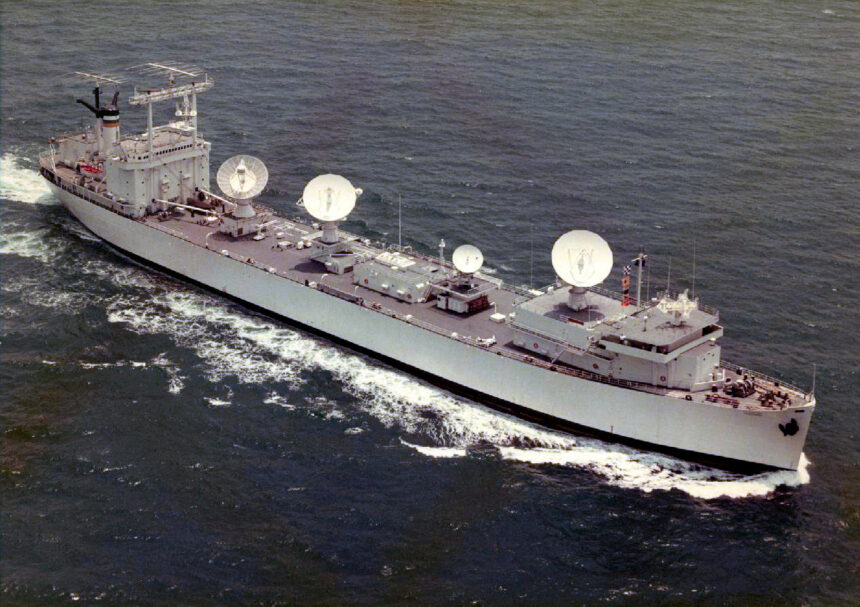A Russian intelligence vessel operating near UK territorial waters has used lasers to interfere with British military pilots for the first time, Defence Secretary John Healey revealed in a press conference at Downing Street. He described the action as “deeply dangerous” and confirmed the government is treating the incident “extremely seriously.”
Healey said the ship, named Yantar, is currently located north of Scotland and has entered UK waters twice this year, most recently in the past few weeks. According to Healey, the vessel is specifically “designed for gathering intelligence and mapping our undersea cables.” He noted that the laser disruption occurred within the last two weeks, hindering Royal Air Force pilots who were monitoring the vessel’s movements.
“My message to Russia and to Putin is this: we see you. We know what you’re doing. And if the Yantar travels south this week, we are ready,” Healey declared.
He confirmed he had adjusted the Royal Navy’s rules of engagement to enable closer monitoring of the ship “when it’s in our wider waters.”
The vessel is reportedly operated by Russia’s Main Directorate for Deep Sea Research (GUGI), which Healey said is designed to carry out surveillance in peacetime and conduct sabotage operations in the event of conflict.
“It is part of a Russian fleet designed to put and hold our undersea infrastructure and those of our allies at risk,” he warned.
“That is why whenever the Yantar is in British wider waters, we track it, we deter it, and we say to Putin we are ready — and we do so alongside our allies.”
Healey previously raised concerns over the vessel’s presence in UK waters earlier in the year. When asked about potential military responses, he stated: “We have military options ready should Yantar change course. I am not going to reveal those because that only makes President Putin wiser.”
Addressing the dangers of laser interference, he said:
“Anything that impedes, disrupts or puts at risk pilots in charge of British military planes is deeply dangerous.”
The UK and NATO allies have increasingly expressed concern about threats to critical undersea infrastructure, including internet cables and energy pipelines.
Healey also highlighted broader international threats, citing recent Russian incursions into NATO airspace, strategic challenges posed by China, and rising global conflict.
“Our world is changing. It is less predictable. It is more dangerous,” he said.
MoD Criticised Over US Reliance
Meanwhile, the Ministry of Defence has been criticised by a parliamentary committee for its reliance on US defence capabilities, with MPs warning that Britain and European allies should be preparing for the possibility of a reduced American role in NATO.
Healey responded that the government “takes a different view” regarding the strength of US commitment, emphasising:
“The strength of NATO is not just about the defence of Europe — it’s about the defence of America too.”
However, he acknowledged the committee was “right to say Britain should pick up the pace of our commitment,” a process he claimed was already underway since Labour took office last year.
Defence Talks with EU Under Time Pressure
The warning comes amid intense negotiations between UK and EU officials over access to a new €150bn (£130bn) European defence loan scheme launching next year. The government is pushing to secure British defence industry participation before applications close later this month.
Healey said the UK is keen to contribute to the programme but stressed:
“We want to be part of the programme, but not at any price.”
Any payment made to secure access must be “good value for money for our taxpayers and our industry,” he added.






